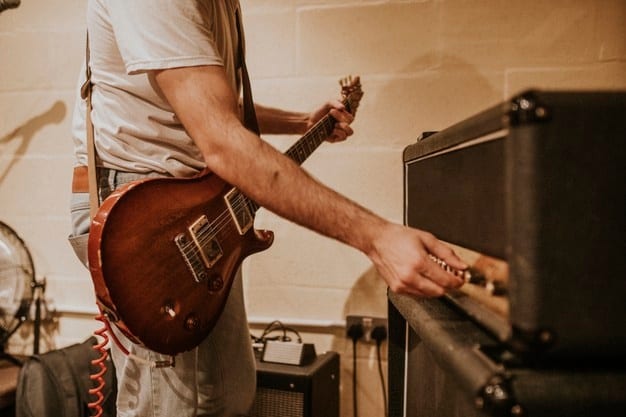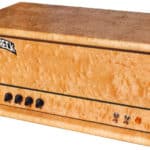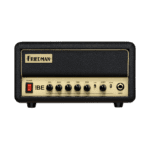When we search about instruments, amps, or any kind of music equipment we may find the word “boutique” attached to them.
This term makes us think usually of higher prices or better looks but it is not everything about money and appearance.
Boutique types of equipment also offer a particular sound because of their construction and are very popular among seasoned gigging musicians.
What is relevant about the term “boutique” is that it refers to any music gear typically handcrafted, high-ended, better in terms of quality components, and construction itself. It also means exclusivity, since all of these perks come at a higher price tag, and in many cases after a waiting period.
Therefore, boutique pieces are superior but, why? Are they better than mass-assembled gear? Why are they so expensive? Where is this word from?
Through this article, I will try to answer each of the previous questions. Continue reading and you will know the most relevant features about boutique pieces of gear.
Where does the term “boutique” come from?
The term boutique comes from a French word that refers to any small shop.
This word translates an air of exclusivity and is used to describe high-quality, handmade musical gear.
This kind of equipment is built-in small-scale production which allows the manufacturer to pay exclusive attention to detail when constructing individual units.
That’s why we say they are exclusive and of course, this is also related to price.
As the builders use high-quality components and spend long-lasting hours making their pieces, the price of the units will significantly raise.
Most common boutique pieces of gear
We can find any kind of boutique piece of gear. The most common are instruments (mainly guitars and basses), pedal effects, and amps.
As a rule of thumb, boutique companies do not mass-produce units in large quantities.
What they do instead is handcrafting instruments one by one. The interesting thing about boutique instruments relies on how they are built.
For instance, Trussart guitars are mainly made of steel. In the case of boutique amps, although there are transistor amps, they are mostly tube amps and a remarkable feature is that they can have custom settings.
The same happens with pedal effects, they provide a premium sound and aesthetic design.
Therefore, the term boutique has the same meaning to all of them.
Are boutique pieces of gear better?
We’ve already talked about what boutique gear is and which are the most popular forms in which it comes but the important question would be, is this equipment better?
Well, not necessarily.
Like everything, this depends on everyone’s taste.
The required materials to build boutique amps or instruments are indeed superior (crafters use high-ended and probably vintage components) but this does not mean that they are better.
Nevertheless, as builders put in the hours to every gear one at a time, boutique gear is considered artisanal.
In addition, most boutique builders will offer some sort of customization to their clients, so they can deliver them a really unique product.
Think of this as buying a suit in a fast-fashion retailer against going to a tailor.
To sum up, boutique pieces are superior in terms of quality but whether they are better or not, it is up to the player.
What makes boutique gear so expensive?
When we listen to the word “boutique” we instantly think about the excessively high prices. Well, boutique equipment is not precisely affordable but let me explain to you why.
The difference in pricing is related to inventory issues. Boutiques are small to mid-size companies so they make their products in short quantities.
What is more, a small number of people is involved in the production process.
This is because they are usually little companies, sometimes just of one person so as manufacturers are passionate about their work, they pay extended attention to detail.
Needless to say, the high-quality components are used to make the gear more expensive.
And even if they used the same off-the-shelf components that bigger brands get, boutique builders, lack economies of scale.
They can’t get the same rates that the big boys like Fender or Gibson get for their massive bulk orders of raw materials.
However, as they don’t buy in bulk, they get to choose with more attention what they buy.
And this is extremely important when buying tonewoods, for instance, since every tree is different, and not all will make the best guitar.
Should you get a boutique amp, guitar, or pedal?
I’m sorry, but I can tell you what’s best for you.
So, the answer would be it is up to you.
I cannot say that you should get boutique pieces of gear but what I do know is that they won’t make you a better musician.
However, if you can afford boutique gear, it might help you get a specific sound.
Customization is an important factor, you can find gear made with particular settings only present in boutique pieces.
Besides, there are boutique reissues of amps, guitars, and pedals
This means that you can get a product that is no longer produced.
For example, it is a wonderful option for those players who prefer vintage equipment.
In conclusion, if you have the needed amount of money to spend on a boutique piece that suits your expectations, by all means, go for it.
Nevertheless, it is important to bear in mind that it wouldn’t be like a magical spell that will turn you into the best musician in the world.

Hello there, my name is Ramiro and I’ve been playing guitar for almost 20 years. I’m obsessed with everything gear-related and I thought it might be worth sharing it. From guitars, pedals, amps, and synths to studio gear and production tips, I hope you find what I post here useful, and I’ll try my best to keep it entertaining also.





